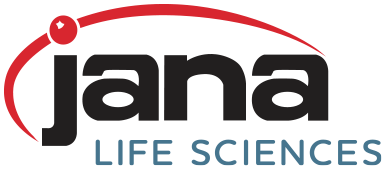
Quality, Compliance & operational excellence
Develop effective processes, procedures and training programs, including as it relates to your systems — ensuring control of your business and mitigation of risks, such as a CAPA or 483.
A.) OPERATIONAL EXCELLENCE (OPEX)
Drive Human & Organizational Performance (HOP) Initiatives
Streamline and Automate Processes & Operations
Drive Adoption through Improved User Experiences
Develop Insight & Control through Active Monitoring & Metrics
Develop Improved Track & Trace Capabilities
Review, Refine & Develop Training Programs
B.) OPEX TOOLS & TECHNIQUES
Map Current Processes
Identify Weak & Inefficient Processes, including through Gemba/Genba
Re-engineer Business Processes (BPR/BPRE)
Design, Map & Implement New Processes
Determine Process, System & Data Relationships
Map Value Chains
Develop Value-Stream Mappings of Material Flows & Information Flows
Summarize relevant Suppliers, Inputs, Processes, Outputs, and Customers (SIPOC, also referred to as COPIS)
Develop SWOT (Strengths, Weaknesses, Opportunities, Threats)
Develop a Balanced Scorecard
Enable Modeling & What-If Analyses
C.) QUALITY MANAGEMENT SYSTEM Documentation
Write from Scratch or Revise:
Policies, Manuals & Objectives
Standard Operating Procedures (SOP)
Work Instructions (WRK)
Job Breakdown Sheets (JBS) based on Training Within Industry (TWI) Methodology
Job Aids & Enabling Documents
Ensure Alignment Within & Across Processes as well as with Training Programs
D.) Health & safety
Identify Requirements for:
Safety Training Programs
Facilities & Safety Equipment
Implement:
Safety Response Programs
Documentation to Identify & Communicate Safety Hazards and Emergency Procedures, including First Aid
E.) compliance & TRAINING
Aim to Conform with Agency Guidelines while Properly Managing Specific Types of Product or Process Information in Association with:
Current Good Manufacturing Practice (GMP)
Current Good Laboratory Practice (GLP)
Current Good Clinical Practice (GCP)
Good Regulatory Practice (GRP)
Good Distribution Practice (GDP)
Good Agricultural Practice (GAP)
Develop & Implement Blended Training/Learning Programs:
Instructor-led
eLearning
Simulations
Shadowing & Hands-on
Coaching & Mentoring
Case Studies
Enforce Operating Standards, such as:
Medical Device Regulation (MDR)
General Data Protection Regulation (GDPR)
Identification of Medicinal Product (IDMP)
F.) METHODS, FORMATS & STANDARDS
Six Sigma & Lean Six Sigma, including:
DMAIC
DMADV
Root Cause Analysis (The 5 Whys)
Japanese Methodologies:
Hoshin Kanri
Kaizen
The 3 Mu
The 5S Movement
The 7M Checklist
The 7 Muda
Just In Time (JIT)
Kanban
Gemba/Genba
Change Management:
Prosci ADKAR: Awareness, Desire, Knowledge, Ability, Reinforcement
Plan-Do-Check-Act (PDCA)
Kotter 8-Step Change Model

data & Documentation
Transform highly complex information into digestible technical documentation woven into sustainable training frameworks, programs and materials. Beyond authoring, we produce graphics, multi-dimensional illustrations, 3D models, and animated videos. Our expertise in XML, S100D, and DITA enables structured development and parallel publication.
A.) AUTHORING & TECHNICAL SOLUTIONS
Technical Authoring / Technical Documentation
Technical Drawing / Illustration & Computer-Aided Design (CAD)
3D Animation, 3D Modeling, 3D Simulation & Rendering
Video Production & Still Shot Photography
Content Strategy & Content Management
Structured Data Development & Management using XML & DITA
Training Program & Material Development
B.) DOCUMENTATION TYPES
ISO 9001-Related Documents:
Policies, Manuals & Objectives
Standard Operating Procedures (SOP)
Work Instructions (WRK)
Job Breakdown Sheets (JBS)
Job Aids & Enabling Documents, such as Records & Forms
__________________________________________
Other Document Types JANA Produces:
Process Flow Diagrams (PFD)
Piping & Instrumentation Diagrams (P&ID)
Wiring Diagrams & Schematics
Illustrated Parts Lists & Catalogues
Product Illustrations & Detailed Breakdowns
Tool, Equipment & Instrument Manuals
Installation, Operation, User & Procedural Manuals
Maintenance & Repair Manuals
Fault Isolation Manuals
Safety Manuals & Safety Training Materials
Data Sheets, Spec Sheets, Material Safety Data Sheets (MSDS) & Safety Data Sheets (SDS)
Style Sheets
Service Bulletins
Compliance Guidelines (e.g., OSHA)
C.) DATA & DOCUMENT MANAGEMENT
Develop Data & Document Management Strategies
Identify Core Data & Documents and their Respective Systems
Develop, Deliver & Manage Structured Data in XLM & DITA
Build Taxonomies
Add Enrichment & Metadata
Optimize Content Reuse
Validate Data & Documents
Facilitate & Accelerate Content Development
Create Dynamic Learning Materials
Develop Real-time Marketing Literature
Enable Efficient Content Use & Reuse: Write Once & Publish Everywhere
Reduce Redundancies
Improve Search Experiences
Enable Transparency to Regulators & Partners
Enhance Customer Support: Target Content Based on Their Profiles
Ensure Customers Get the Latest Information
Facilitate Selection of Data & Document Systems
Manage Conversions of Documents from Legacy Software (e.g., FrameMaker and Interleaf) into DITA
Manage Migrations & Integrations of Critical Business Information, including Regulated Content
Validate and Implement Systems (Refer to IT Systems)
D.) METHODS, FORMATS & Standards
Simplified Technical English (STE)
Document Type Definition (DTD)
Extensible Markup Language ( XML)
Standard Generalized Markup Language (SGML)
SGML-Family Markup Language (GML, SGML, XML, HTML)
Formatting Output Specification Instance (FOSI)
DocBook in support of Presentation-Neutral Form
Structured Product Labeling (SPL)
Regulatory: FDA, EU, OSHA, GDPR & IDMP

IT SYSTEMS
Ensure hardware and software components integrate seamlessly, share information in real time, and provide meaningful insights on demand.
A.) SYSTEM CHECKUPs & ROADMAPPING
Map Current & Future State Processes & Systems and Develop Associated Transition Plans
Articulate Data Flows & Connections and Develop Information Architecture
Develop Requirements & Selection Criteria for:
Data Services & Business Intelligence (BI)
Software Products & Operating Capabilities
Content Types & Data Size Requirements
Storage Capacities & Locations
Web, Cloud & Mobile Capabilities
Assess, Design, Develop & Maintain Intranet & Internet Websites
B.) MIGRATE, INTEGRATE, STRUCTURE & STORE
Migrate Data, Documents & Systems:
Extract, Transform & Load (ETL) Data
Integrate Databases:
Establish Application Programming Interfaces (API)
Organize & Structure Data:
Separate by Strategic Business Units (SBU)
Develop Master Data Layers
Enable Rigorous Data Analysis & Reporting (BI, Dashboards)
Automate with Machine Learning (ML) & Artificial Intelligence (AI)
Archive Data & Ensure Long-Term Access/Availability
C.) System TYpes
Websites (Internal & External)
Content Management Systems (CMS)
Quality Management Systems (QMS)
Learning Management Systems (LMS)
Knowledge Management Systems (KMS)
Training Management Systems (TMS)
Laboratory Information Management Systems (LIMS)
Research Use Only (RUO) & Diagnostic Systems
Electronic Trial Master Files (eTMF)
Medical Device Master Files (MAF)
Regulatory Information Management Systems (RIMS)
D.) COMPLIANCE & SECURITY
Align Processes, Systems & Data
Create Test Plans & Use Cases
Create Event Logs & Test Reports
Track & Mitigate Defects: Program Coding & Configurations
Create Fault Tolerance & System Recovery Plans
Perform & Ensure Qualification/Validation:
Installation Qualification (IQ)
Operation Qualification (OQ)
Performance Qualification (PQ)
Test for Vulnerabilities & Potential Hacking Vectors
E.) METHODS, FORMATS & STANDARDS
Agile, Scrum, Waterfall & DevOps
Test & Behavioral Driven Development (TDD, BDD) & Domain Driven Design (DDD)
Darwin Information Typing Architecture (DITA)
Extensible Markup Language ( XML)
Standard Generalized Markup Language (SGML)
SGML-Family Markup Language (GML, SGML, XML, HTML)
Regulatory: FDA, EU, OSHA, GDPR, IDMP

Project & PROGRAM MANAGEMENT
Spring your projects and programs into action. Our professionals have the experience, methodology and innovative technology to manage projects on any scale. Build confidence around your objectives.
A.) STRATEGIC PLANNING
Establish operating frameworks, including governance & processes for project managers, project management offices (PMO) & teams
Develop vision, mission, objectives, strategies, and actions (VMOSA) for teams, departments & organizations
Assess & develop resource models aimed to meet near-to-mid-term objectives
Assess maturity of project management & project management office (PMO) models
Develop organizational metrics, dashboards & scorecards
Create project prioritization capabilities
Establish project management processes & tools (i.e., toolkit)
B.) TACTICAL PLANNING
Develop project charters
Develop communication plans & manage project information accordingly
Develop comprehensive program/project plans & manage associated scope changes
Develop & manage project budgets/timelines
Develop RACI/RASCI
Conduct in-depth stakeholder analyses
Perform Root Cause Analyses (RCA)
C.) EXECUTION & CLoseout
Conduct project kickoff meetings focused on project objectives, milestones, & overall goals
Manage relationships & information sharing between writers, editors & subject matter experts (SME)
Update schedule resources, tasks, milestones & deliverables
Track & regularly report project progress to stakeholders
Assess, track & mitigate issues & risks
Manage & maintain oversight responsibility for the production of final deliverables
Maintain accountability in ensuring all deliverables meet required style, regulatory & quality standards
Conduct project closeouts to ensure lessons are learned & appropriate knowledge is transferred
D.) METHODS, FORMATS & STANDARDS
Project Management Body of Knowledge (PMBOK)
VMOSA Model: Vision, Mission, Objectives, Strategies & Actions

try a complimentary session and see if it’s right for you.
We offer a free 30 to 90 minute consultation with no pressure or obligation.
